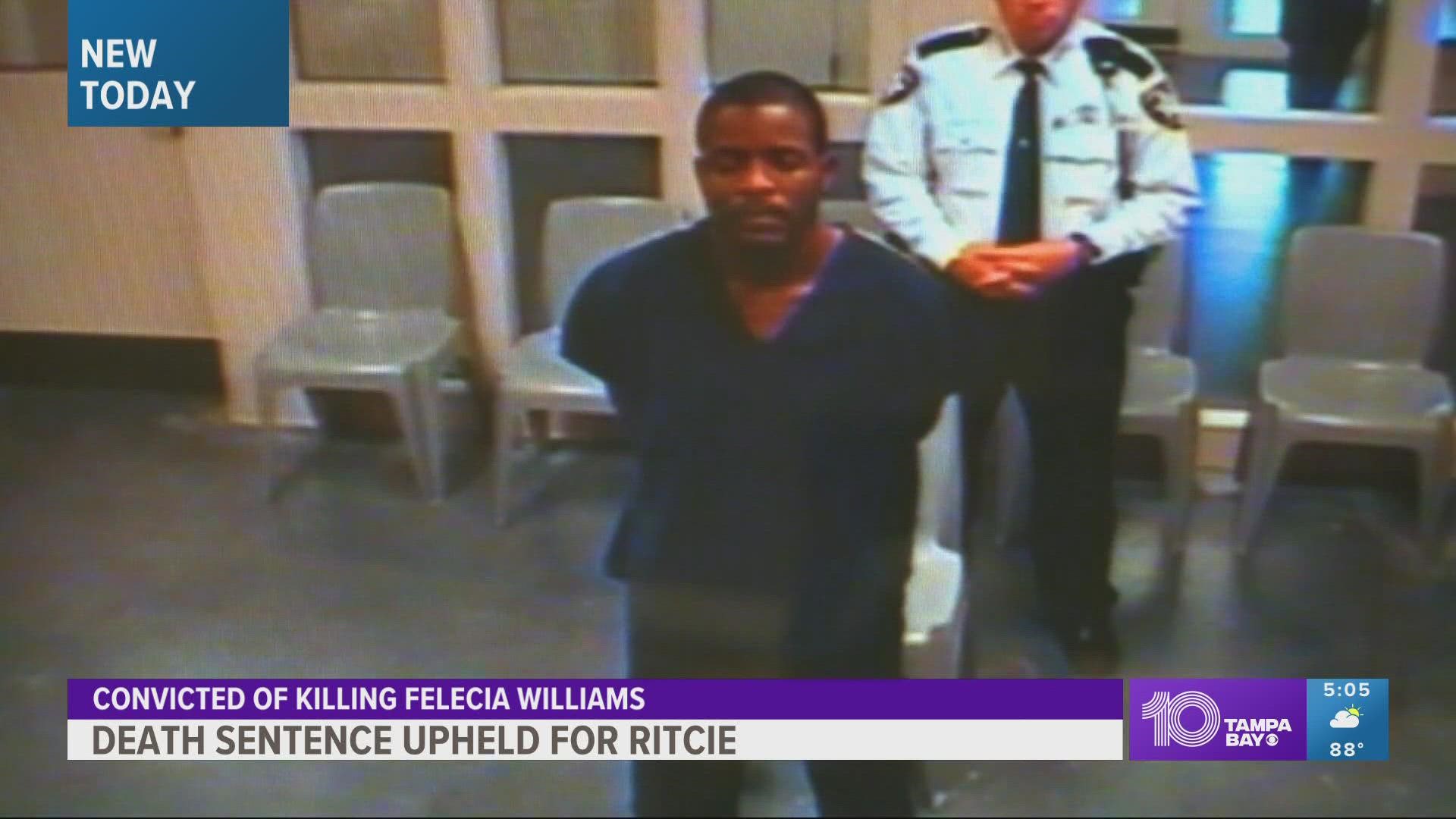TALLAHASSEE, Fla. — The Florida Supreme Court on Thursday upheld the convictions and death sentence for a man who sexually battered and killed 9-year-old Felecia Williams.
Granville Ritchie was sentenced to death for the 2014 murder of the young girl whose body was found off the Courtney Campbell Causeway. A jury found him guilty of rape and murder just four hours after closing arguments.
Cell phone records showed Ritchie in the area where Williams' body was found, plus leaves and sand taken from his car matched those found at the crime scene.
In his appeal, Ritchie argued, in part, that the state prosecutor made improper comments during the closing arguments of his sentencing. Justices agreed that the prosecutor crossed the line in asking jurors to imagine the pain to themselves and to compare that pain to an idea of what the victim must have felt, court documents read. But the prosecutor was said to be in the right to ask the jury to consider what the evidence showed against Ritchie and what Williams experienced as he compressed her neck.
The documents show Ritchie complained about other comments made by the prosecutor, but justices largely did not necessarily agree.
Chief Justice Charles Canady, Justice Alan Lawson, Justice Carlos Muñiz, Justice John D. Couriel and Justice Jamie Grosshans concurred with the opinion. Justice Ricky Polston concurred in result, while Justice Jorge Labarga concurred in part and dissented in another.
Although Labarga agreed with the majority's decision to affirm Ritchie's murder conviction, he would require a new sentencing hearing given the "improper statements of the prosecutor" during the penalty phase.
"The evidence in this case established that Ritchie committed a horrific murder, and I fully concur in the majority’s decision to affirm his conviction for first-degree murder," Labarga wrote in his dissent. "It is in light of this horrific crime, though, that the prosecutor was duty-bound to take great care—to ensure that the jury’s recommendation of life or death was based on the facts and not on inflammatory and improper arguments."

